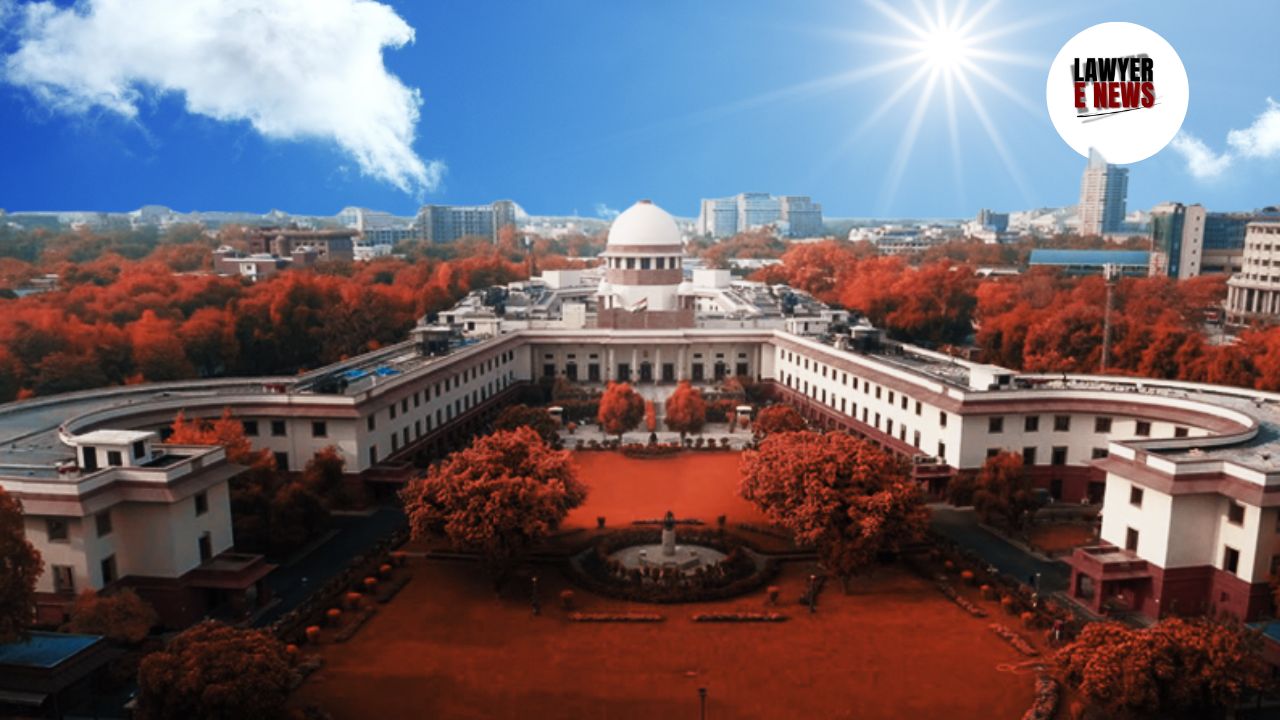-
by Admin
15 February 2026 5:35 AM



Supreme Court of India, On October 25, 2024, upheld the Madhya Pradesh High Court’s acquittal of Ramjan Khan and others accused of murdering Naseem Khan in 1996. The bench, comprising Justice C.T. Ravikumar and Justice Sudhanshu Dhulia, dismissed the appeal, finding no grounds to overturn the High Court’s determination that inconsistencies in witness testimonies raised reasonable doubt, thus entitling the accused to acquittal.
The case stemmed from the 1996 killing of Naseem Khan, allegedly attacked by Ramjan Khan, Musaf Khan, and Habib Khan near the village well of Karaikheda. The Additional Sessions Judge initially convicted the accused in 1998, sentencing them to life imprisonment for murder under Section 302, IPC, read with Section 34. The conviction was based primarily on the testimonies of two minor witnesses—Naseem Khan's brothers (PWs 5 and 9)—and other family members, which the High Court later found unreliable due to material contradictions.
The Madhya Pradesh High Court overturned the conviction in 2013, ruling that discrepancies in witness accounts and lack of corroborative evidence warranted acquittal. The State of Madhya Pradesh appealed this decision to the Supreme Court.
The core issue before the Supreme Court was whether the High Court’s judgment was flawed in granting acquittal based on unreliable evidence. In examining the appeal, the Supreme Court noted that, while an appeal against acquittal warrants caution, it can interfere where evidence appreciation by the lower court is patently perverse or erroneous. The Court highlighted precedents, including Govindaraju v. State by Sivaramapuram PS, emphasizing that acquittals must stand if supported by a “reasonably possible view” even if other interpretations exist.
The Court assessed the testimonies, finding that the trial court overlooked several contradictions in statements by the main witnesses, PWs 5, 8, and 9. These omissions, the Court noted, were essential to establishing the credibility of the witnesses.
Details of the Judgment
1. Testimonies of PWs 5 and 9:
The Supreme Court observed that both PWs 5 and 9, Naseem Khan’s younger brothers, were inconsistent in their testimonies regarding the identity and actions of the accused. Initially, they did not disclose specific details of the attack to the police, such as the weapons used or the exact roles of each accused. These details emerged only during the trial, leading the Court to treat these testimonies with skepticism.
2. Testimony of PW-8 (Mother of Deceased):
The mother, PW-8, claimed her deceased son made an oral dying declaration implicating the accused. However, this claim was neither corroborated by other witnesses nor recorded in initial statements to the police, rendering her testimony unreliable. The Court referenced Dharma Rama Bhagare v. State of Maharashtra, asserting that dying declarations—especially when verbal—require careful scrutiny.
3. Medical Evidence:
The postmortem report confirmed that Naseem Khan died from head injuries consistent with an attack. However, no forensic evidence linked the accused directly to these injuries. The Supreme Court agreed with the High Court’s assessment that, without reliable witness testimony, the medical evidence alone could not conclusively establish the accused's guilt.
4. Hostile Witnesses:
Two other witnesses, PW-2 and PW-17, were declared hostile and did not support the prosecution's narrative. The Supreme Court upheld the High Court’s decision to disregard their testimonies.
5. Inconsistencies in Police Records:
The Court noted several discrepancies between witness statements to the police and their in-court testimonies, such as PW-5 and PW-9’s omission of the accused’s names in their police statements. Such material omissions, according to the Court, compromised the credibility of their testimonies.
The Supreme Court concluded that the High Court's acquittal was based on reasonable grounds, particularly the lack of credible and consistent evidence. The Court affirmed that the burden of proof rests with the prosecution to establish guilt beyond a reasonable doubt, which was unmet in this case. In dismissing the appeal, the Court remarked that “when on facts the view taken by the High Court was a reasonably possible view, though not the only view, interference with acquittal would be uncalled for.”
Date of Decision: October 25, 2024
The State of Madhya Pradesh v. Ramjan Khan & Ors.
